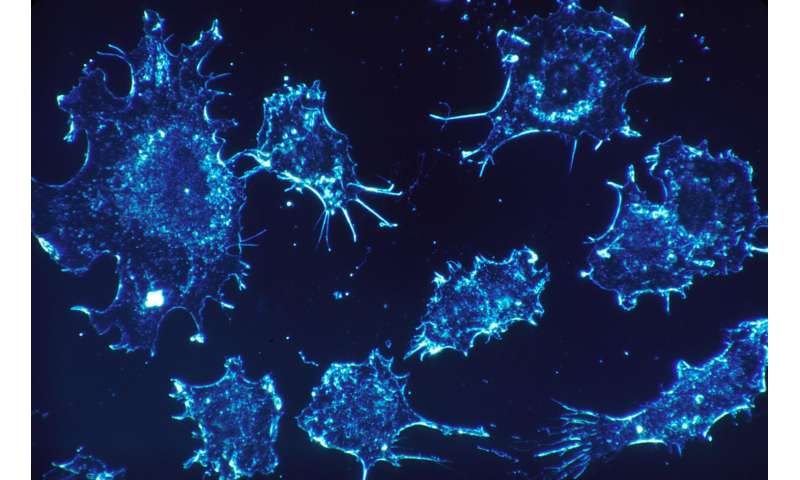Immunotherapy improves survival in advanced bladder cancer patients


An immunotherapy drug called ‘avelumab’ has been shown to significantly improve survival in patients with the most common type of bladder cancer, according to results from a phase III clinical trial led by Queen Mary University of London and Barts Cancer Centre, UK.
This is the first time an immune therapy has resulted in a survival advantage in this setting in bladder cancer, and will potentially benefit thousands of patients each year.
The results were published in the New England Journal of Medicine and found that avelumab led to a 31 percent reduction in risk of death of bladder cancer and extended median survival in advanced bladder cancer by more than seven months.
Approximately 550,000 new cases of bladder cancer are diagnosed each year (10,200 of which are in the UK), making it the tenth most common cancer worldwide. This trial focused on the group of these patients whose cancer had spread beyond the bladder (advanced or stage 4 disease), which is difficult to treat and results in more than 200,000 deaths each year worldwide.
Chemotherapy is the current initial standard of care in the treatment of these advanced cancers. After chemotherapy is finished, patients are checked regularly because the cancer tends to return quickly. When it returns it is difficult to treat and outcomes are poor.
The phase III global trial, named JAVELIN Bladder 100 and funded by Pfizer and Merck KGaA Darmstadt, Germany, evaluated the efficacy of the immunotherapy drug ‘avelumab’ in patients with locally advanced or metastatic urothelial carcinoma, whose disease had not progressed after chemotherapy.
A total of 700 patients from over 200 sites around the world were then assigned to two treatment groups after the completion of chemotherapy—one group receiving regular checking (standard care) on its own, and the other receiving avelumab in addition to standard care.
Treatment with avelumab resulted in a 31 percent reduction in risk of death and median overall survival of 21.4 months compared with 14.3 months in patients who did not receive the drug. Side effects were in line with expectations with immune therapy and 11 percent of patients stopped avelumab due to treatment problems.
Study lead Thomas Powles, Professor of Genitourinary Oncology at Queen Mary University of London, and Director of Barts Cancer Centre, Barts Health NHS Trust, said: “This is the first time that an immune therapy clinical trial has shown a survival benefit for first-line therapy in metastatic bladder cancer.
“We saw a meaningful reduction in the risk of death and a significant overall survival benefit with avelumab, which underscores the potential for this immunotherapy to be practice-changing for patients. This highlights the potential benefits of a maintenance approach with avelumab in patients to prolong their lives following chemotherapy.”
In the UK, an early access medicine scheme (EAMS) for avelumab is an option for bladder cancer patients who have benefited from chemotherapy, consistent with the Javelin Bladder trial criteria. Avelumab will now be available in the UK to advanced/metastatic urothelial carcinoma patients through the EAMS scheme.
In the US, the Food and Drug Administration (FDA) has approved avelumab for the maintenance treatment of patients with locally advanced or metastatic urothelial carcinoma that has not progressed with first-line platinum-containing chemotherapy based on the JAVELIN Bladder 100 results.
Source: Read Full Article



